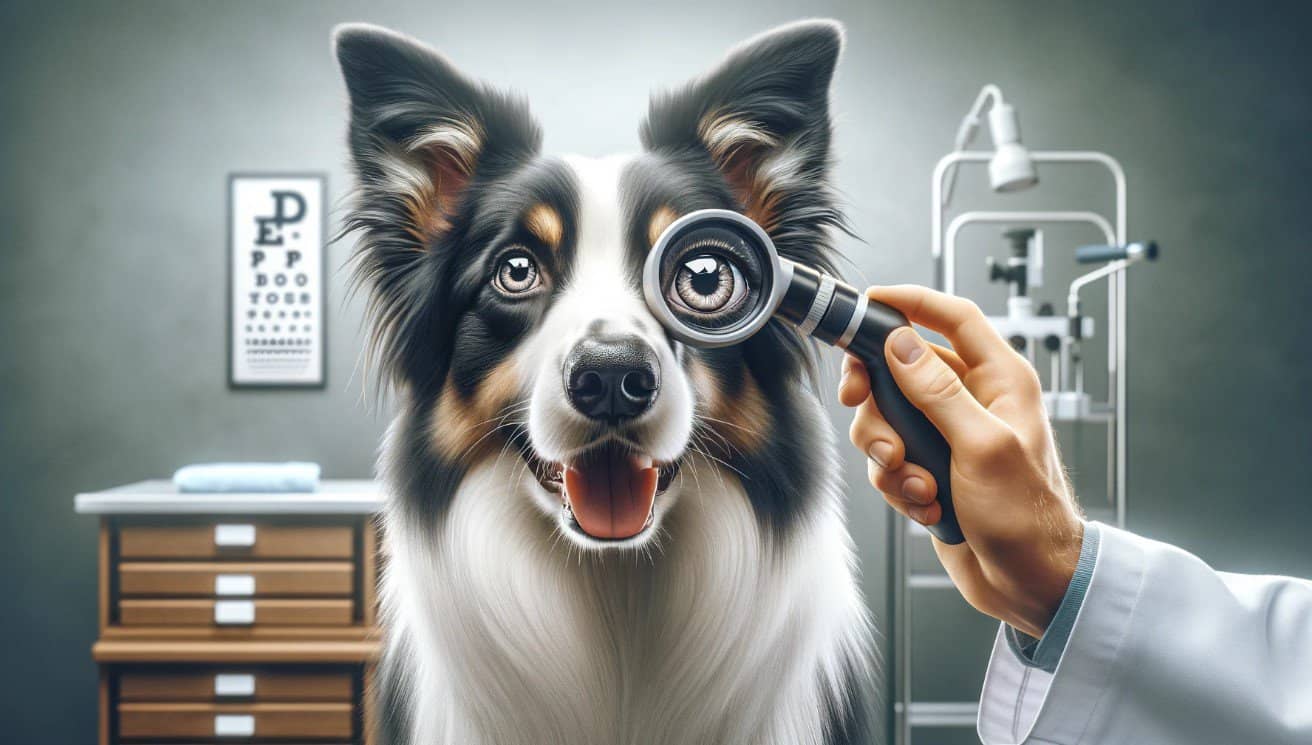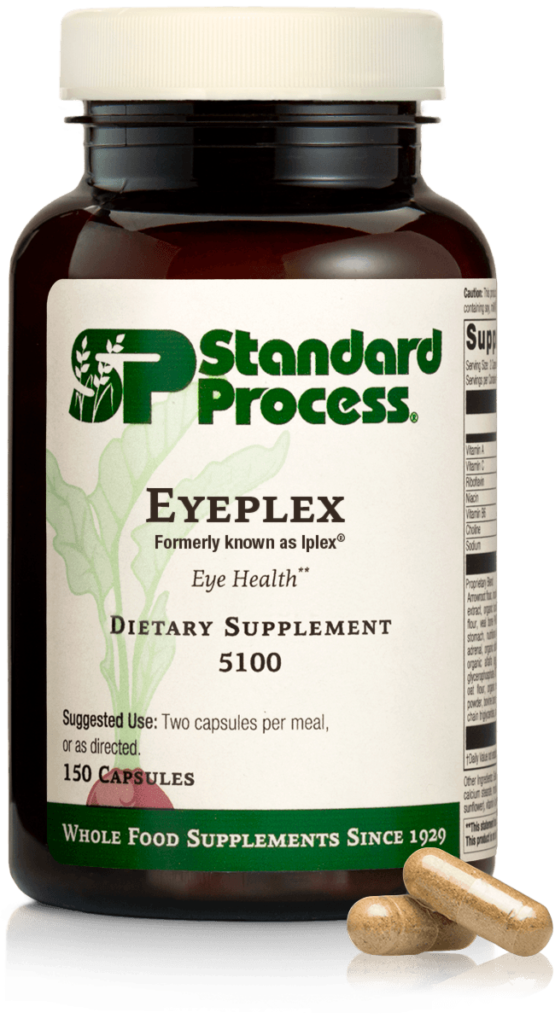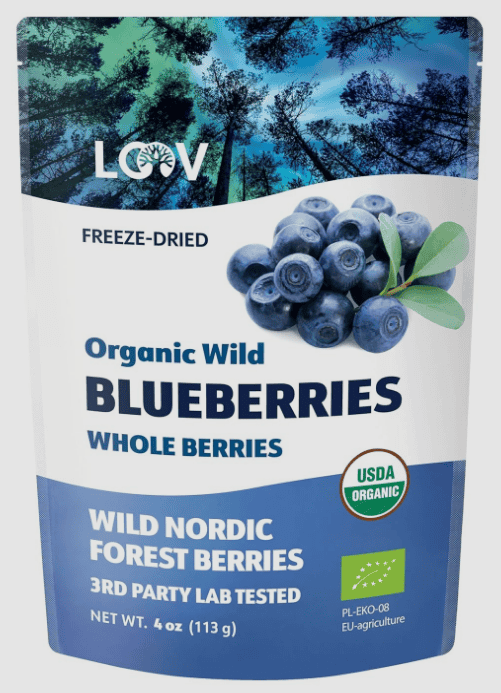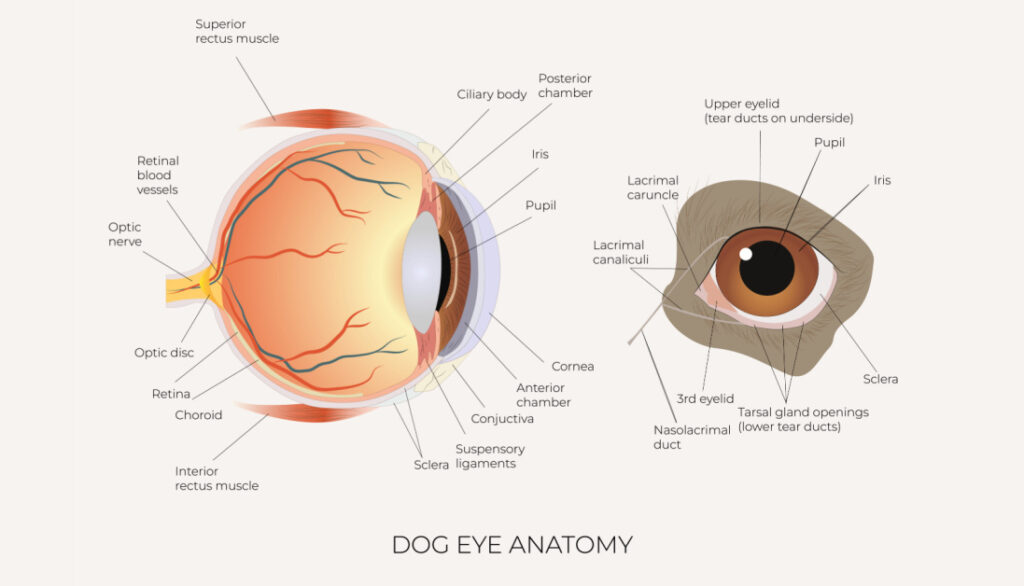Hi there, fellow dog lover! I’m Dr. Candy Akers, and today I’d like to chat with you about a topic close to my heart – Border Collie Eye Health. As a holistic veterinarian, I’ve seen firsthand how much our furry friends rely on their eyes, and just how important it is to keep them in tip-top shape.
Our beloved Border Collies are known for their sharp intelligence, boundless energy, and striking gaze. But, did you know that this particular breed can be prone to specific eye conditions? It’s true, and that’s why keeping an eye (pun intended!) on your Border Collie’s vision health is so important.
From understanding the unique structure of their eyes, to recognizing common Border Collie Eye Diseases, to learning about preventative care and treatment options – there’s a lot to cover. But don’t worry, I’m here to guide you every step of the way.
By the end of our chat, you’ll be equipped with the knowledge you need to help your Border Collie maintain optimal eye health. So, let’s explore the fascinating world of Border Collie Eye Care!

Understanding Breed Specific Eye Structure
As an experienced holistic veterinarian, I’ve always found the eyes of Border Collies to be truly captivating. Not just because of their intense focus and expressiveness, but also due to their unique structure. If you’re a Border Collie parent, understanding your dog’s specific eye structure can provide invaluable insights into potential health risks and preventive measures.
Border Collies have a wide field of vision, estimated to be around 270 degrees, much wider than the human field of vision which is approximately 180 degrees. This wide field of vision is a significant asset for a breed historically bred for herding livestock. The structure of a Border Collie’s eyes is quite complex, with several different components working together to provide optimal vision. The cornea, the outermost layer of the eye, is clear and dome-shaped, protecting the eye and allowing light to pass through. The lens, located behind the pupil, focuses light onto the retina at the back of the eye. The retina is lined with photoreceptor cells that convert light into electrical signals, which are then sent to the brain via the optic nerve.
However, it’s not all about structure. The health of your Border Collie’s eyes also depends on the production and drainage of aqueous humor, a clear fluid in the front part of the eye. An imbalance in the production and drainage of this fluid can lead to increased pressure in the eye, resulting in a condition known as glaucoma, a common eye problem in Border Collies.
Understanding the specific eye structure of your Border Collie can help you recognize early signs of eye problems. Regular vet check-ups are essential in monitoring your dog’s eye health, but your awareness as a pet parent can make a significant difference in preventing and managing potential eye conditions.
Common Eye Issues In Border Collie
As a veterinarian, I’ve seen a variety of eye problems in Border Collies. It’s essential to understand these issues to ensure your furry friend’s optimal Border Collie Eye Health. Let’s dive into some of the most common conditions:
- Collie Eye Anomaly (CEA): This is a congenital disorder that affects the development of the eye, potentially leading to blindness. It’s prevalent in Border Collies, so early screening is crucial.
- Progressive Retinal Atrophy (PRA): This disease causes the retina’s gradual deterioration, resulting in night blindness and eventually total blindness. PRA is hereditary, but its onset can be delayed with proper care.
- Conjunctivitis: Commonly known as ‘pink eye,’ it’s an inflammation of the eye’s outermost layer. It can cause redness, itching, and discharge. It’s treatable with medication, but chronic cases may indicate underlying health issues.
- Cataracts: These cause cloudiness in the eye lens, impairing vision. They’re more common in older Border Collies but can occur at any age. Surgery is usually the best treatment option.
- Corneal ulcers: These painful sores on the cornea can result from eye trauma, infection, or inadequate tear production. They require immediate veterinary attention to prevent further damage.
Understanding these conditions is a significant step towards maintaining your Border Collie’s eye health. However, keep in mind that this isn’t an exhaustive list. Other conditions could affect your dog’s eyes, and symptoms can vary. Regular check-ups are vital to catch any issues early on.
Remember, Border Collie Eye Health is not just about treating diseases; it’s about preventing them. Regular eye examinations, a healthy diet, and a clean environment can help keep your Border Collie’s eyes healthy. In the next sections, we’ll discuss these preventive measures in more detail.

Preventing Eye Problems in Border Collies
Ensuring your Border Collie gets the right nutrients for optimal eye health is essential for maintaining clear vision and preventing age-related issues. Natural, nutrient-rich foods and supplements can play a key role in supporting their eyesight. From vitamin A-packed freeze-dried liver treats to antioxidant-rich blueberries and targeted supplements like Eyeplex by Standard Process, there are several ways to nourish your dog’s eyes. In this section, we’ll explore how these powerful ingredients contribute to long-term vision health and overall well-being.
Eyeplex by Standard Process
Eyeplex by Standard Process is a specialized supplement designed to support your Border Collie’s eye health with a blend of essential nutrients. Formulated with key vitamins, minerals, and antioxidants, Eyeplex helps protect against oxidative stress, supports retinal function, and promotes overall vision health. Ingredients like vitamin A, vitamin C, and zinc contribute to maintaining strong eyesight, while whole food ingredients provide additional phytonutrients for cellular protection. Adding Eyeplex to your Border Collie’s diet can be especially beneficial for aging dogs or breeds prone to eye conditions, offering targeted nutritional support to keep their vision sharp and healthy for years to come.

Freeze-Dried Blueberries
Freeze-dried blueberries are a powerhouse of antioxidants that can help protect your Border Collie’s eyes from oxidative stress and age-related damage. Rich in vitamins C and E, as well as anthocyanins, these tiny but mighty berries help combat free radicals that can contribute to eye diseases like cataracts and macular degeneration. Incorporating freeze-dried blueberries into your dog’s diet provides a natural and delicious way to support retinal health, reduce inflammation, and promote overall vision longevity. Plus, they’re a low-calorie, dog-friendly treat that makes a great addition to a balanced diet for long-term eye health.

Freeze-Dried Liver
Freeze-dried liver treats are an excellent natural source of vitamin A, an essential nutrient for your Border Collie’s eye health. Vitamin A plays a crucial role in maintaining good vision, especially in low-light conditions, while also supporting overall immune function and skin health. Since liver is rich in bioavailable vitamin A, incorporating freeze-dried liver treats into your dog’s diet provides a convenient and nutritious way to promote optimal eye function. Just be sure to feed them in moderation, as excessive vitamin A can lead to toxicity. Adding these nutrient-packed treats to your pup’s routine is a simple, tasty way to support their long-term vision and well-being!

By prioritizing your Border Collie’s eye health through a balanced diet and nutritional supplements, you can help prevent many common eye issues. These simple steps can go a long way in ensuring your pup’s eyes stay healthy and clear for years to come.
Remember, before starting your Border Collie on any new diet or supplement regimen, it’s important to consult with your vet. They can provide guidance on the best diet and supplement choices for your dog’s specific needs, ensuring they receive the necessary nutrients for optimal Border Collie eye health.

Environmental Hygiene to Reduce Eye Problems
Keeping your Border Collie’s environment clean can play a significant role in preventing various eye problems. Here’s how you can maintain environmental hygiene to ensure your furry friend’s eye health.
Indoor Air Quality
Indoor air quality is crucial for your Border Collie’s eye health. Dust, smoke, and other airborne particles can irritate their eyes, leading to conditions like conjunctivitis. Regularly clean your home to minimize dust and avoid smoking indoors. Consider investing in an air purifier, especially if someone in your household has allergies. This will not only benefit your family’s health but also keep your Border Collie’s eyes healthy.
Sprays, Diffusers, Candles, Incense
While sprays, diffusers, candles, and incense can make your home smell lovely, they can also contribute to eye irritation in your Border Collie. These products often contain chemicals that can cause eye irritation, redness, or even more serious eye problems. If you notice your dog squinting or rubbing their eyes after you’ve used these products, it might be best to cut back or eliminate them altogether.
Instead, opt for natural alternatives. For instance, you can use essential oils in a diffuser, but make sure they are pet-safe. Some essential oils can be harmful to dogs, so it’s important to do your research before using them. You can also consider using unscented candles or those made from beeswax or soy, which are less likely to irritate your Border Collie’s eyes.
Remember, maintaining a clean and safe environment is a crucial part of your Border Collie’s eye health. By paying attention to indoor air quality and being mindful of the products you use in your home, you can help prevent common eye problems and keep your pup’s eyes healthy.

When it comes to Border Collie eye health, routine care and maintenance are key components. Just like you would for your own eyes, you should take steps to ensure your Border Collie’s eyes are clean, free of irritation, and regularly checked for any signs of issues.
Daily and Weekly Care & Maintenance
On a daily basis, it’s important to check your Border Collie’s eyes for any signs of redness, irritation, or discharge. You can use a soft, damp cloth to gently clean around the eye area. Avoid touching the eyeball itself and always use a clean cloth for each eye to prevent spreading any potential infection.
Once a week, you can take a closer look at your dog’s eyes. Check for any cloudiness, changes in color, or visible injuries. If you notice anything unusual, it’s best to consult a vet immediately.
Another part of routine eye care is ensuring your Border Collie’s eyes are protected from the sun. Dogs can get sunburned too, and their eyes are particularly sensitive. Consider getting your dog a pair of doggy sunglasses to protect their eyes on particularly sunny days.
Monitoring Hair Length, Nail Length, and Bath Frequency
Keeping your Border Collie’s hair trimmed, especially around the eyes, can help prevent eye irritation and potential infections. Long hair can poke and irritate the eye, leading to scratching and possible injury. Regular grooming can help keep your dog’s hair at a safe length.
Similarly, keeping your dog’s nails trimmed can prevent them from accidentally scratching their eyes. Long nails can easily cause injuries, especially if your dog has a habit of pawing at their face.
Regular baths can also play a role in eye health. During baths, be careful to avoid getting soap or shampoo in your dog’s eyes as it can cause irritation or even damage. Always use a dog-friendly shampoo and consider using a tearless variety for added safety.
Remember, Border Collie eye health is a crucial part of your dog’s overall wellbeing. By incorporating these steps into your routine, you’re not only helping to keep your dog’s eyes healthy, you’re also helping to prevent potential eye problems down the line. Always keep an eye (pun intended) out for any changes in your dog’s eyes and don’t hesitate to consult a vet if you have any concerns.
Frequently Asked Questions
1. What are the common eye health conditions in Border Collies?
Border Collies are prone to several eye health conditions, including Collie Eye Anomaly (CEA), Progressive Retinal Atrophy (PRA), and Glaucoma.
2. How can I identify if my Border Collie has an eye health problem?
Watch out for symptoms such as excessive tearing, redness, cloudiness, squinting, bumping into objects, or changes in behavior. If you notice any of these signs, it is recommended to consult a veterinarian.
3. Can eye health conditions in Border Collies be treated?
The treatment options for eye health conditions in Border Collies depend on the specific condition. Some conditions may require medication, surgery, or specialized care. It is important to consult a veterinarian for proper diagnosis and treatment.
4. How can I prevent eye health problems in my Border Collie?
Regular veterinary check-ups, proper nutrition, and avoiding breeding dogs with known eye health issues can help prevent eye health problems in Border Collies. Additionally, protecting your dog’s eyes from injury or excessive exposure to sunlight and chemicals is crucial.
5. Are Border Collies more prone to eye health problems compared to other dog breeds?
Yes, Border Collies are considered to be more susceptible to certain eye health conditions compared to other dog breeds. It is important for Border Collie owners to be aware of these potential issues and take appropriate measures to maintain their dog’s eye health.
